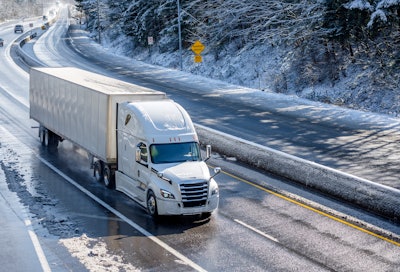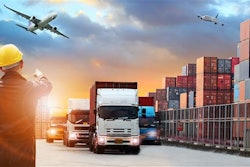
Shippers and carriers are prioritizing climate change, sustainability and new partnerships while capacity is favorable, according to research compiled by Breakthrough.
“Shippers and carriers continue to face a myriad of disruptions. Last year, transportation professionals were focused on reducing costs as a means to overcome volatile diesel prices. This year, sustainability and climate-related disruptions are driving the need for fuel efficiency and changes to transportation strategy,” says Jenny Vander Zanden, COO at Breakthrough. “A majority of shippers have set sustainability targets and we’re seeing them take a more holistic approach. Shippers are looking for sustainable capacity and optimized routes and energy usage to make meaningful progress on emissions reduction.”
Key takeaways:
- Volatile weather is impacting transportation. In fact, transportation leaders, including shippers and carriers, have shifted their priorities over the last 12 months against a backdrop of extreme climate events, geopolitical conflict, and heightened regulatory requirements. Both shippers and carriers named extreme weather events the top transportation challenge for 2024 amid an ongoing drought in the Panama Canal, intensified winter weather, and a highly active hurricane season.
- Climate change is pushing sustainability to the top of the agenda for both shippers and carriers. While EVs were a priority for emissions reduction last year, infrastructure hurdles and uncertainty around legislative priorities mean this year only 13% of carriers have added them to their fleets. This is compared to the 59% that had plans to do so by the end of 2023.
- Half (50%) of shippers are focused on evaluating the potential emissions impact of alternative energies. While a little under half of shippers are also optimizing routes and energy sources by lane – 43% plan to minimize the distance traveled and 42% plan to assess the cost and availability of transitioning select lanes to alternative energy.
- 46% of carriers plan to implement fuel-efficient technologies in their vehicles, while 45% are planning for regular vehicle maintenance to optimize vehicle performance.
- 80% of transportation leaders expect capacity to tighten and rates to increase this year. Since mergers between major carriers have shifted available capacity, shippers are focused on reinforcing their networks while the market is favorable to prepare for continued geopolitical challenges, anticipated sustainability policies, and the upcoming U.S. presidential election. As a result, 51% of transportation leaders are focused on establishing relationships with new partners to increase efficiencies this year – a shift from last year’s priority of bolstering existing partnerships.




















